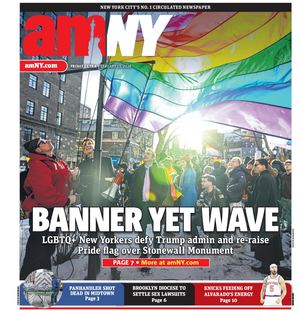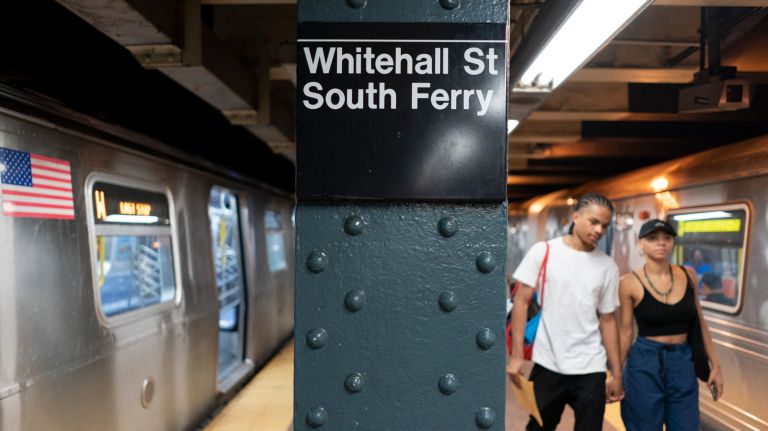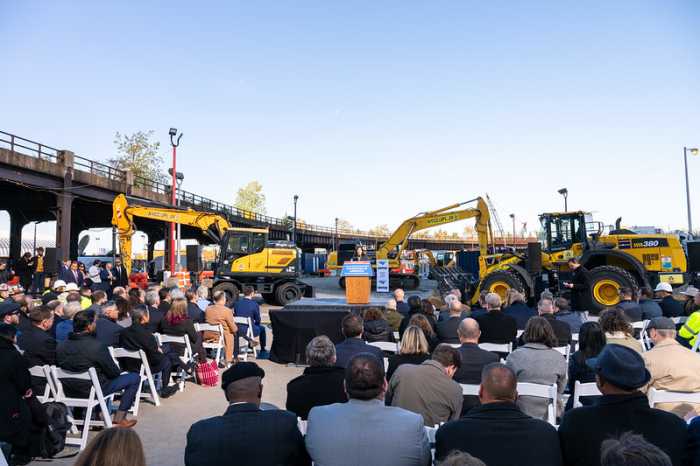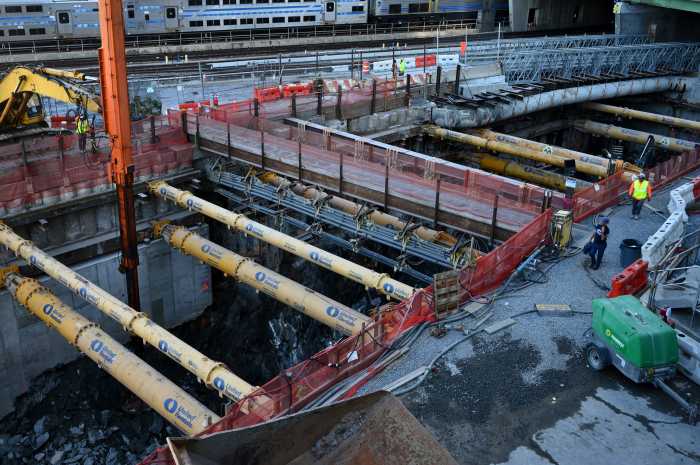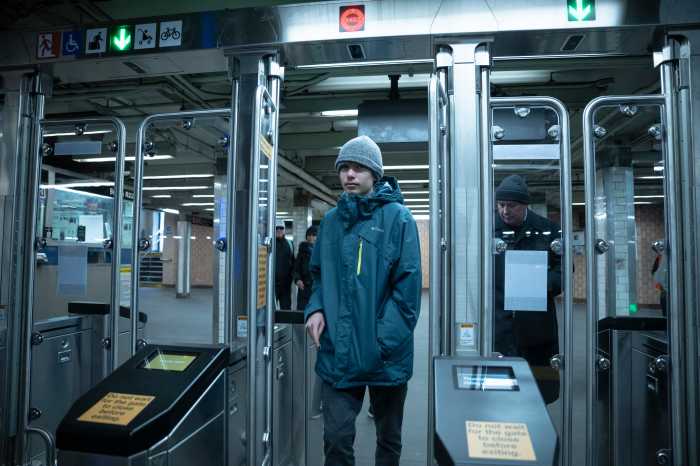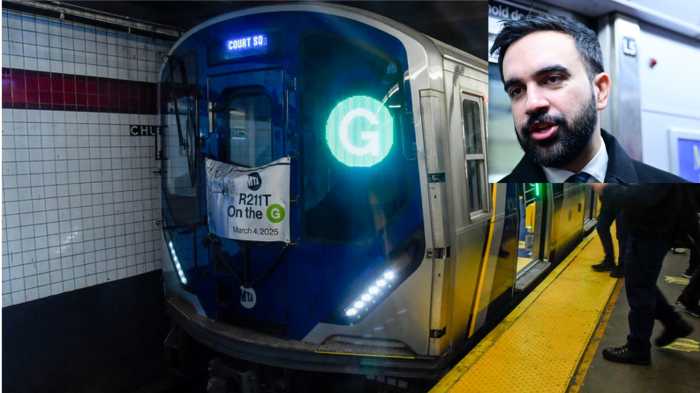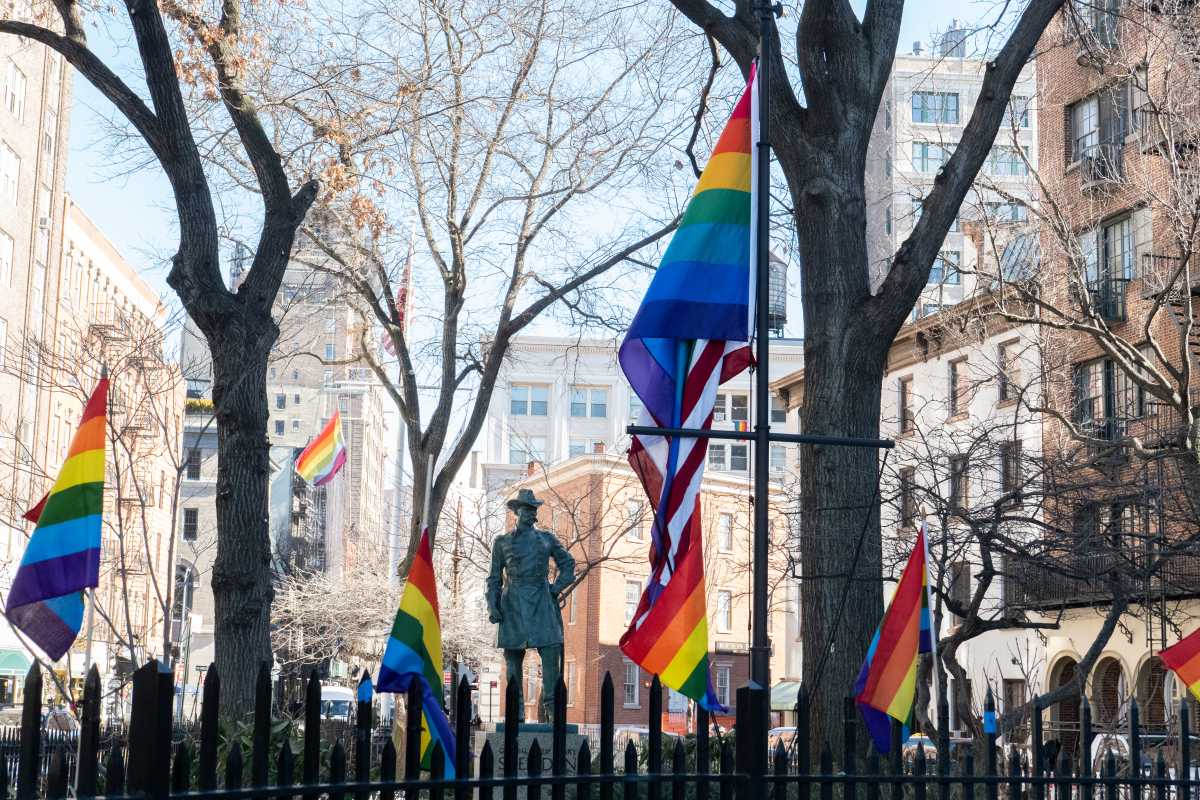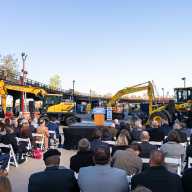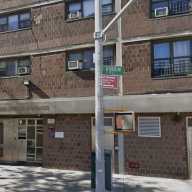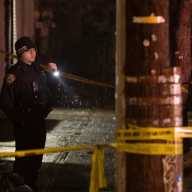
The MTA’s typically delayed and over-budget construction projects are fraught with sloppy work, bureaucratic bungles and contractors who get paid without showing up at all, according to a new report.
The report, an audit from State Comptroller Tom DiNapoli released Monday, highlights a few ways in which the transit authority and its contractors routinely fail to efficiently complete significant capital work and raises concerns as the MTA pieces together its infrastructure plan for the coming years.
“This audit found numerous problems in the MTA’s capital projects pipeline that led to delays and cost overruns,” DiNapoli said in a statement. “These are red flags that fall within the MTA’s power to fix. As the MTA strives to improve the system for riders and overhaul its operations, we hope it takes a close look at what we found in this report and our recommendations.”
Auditors found that during one project, contracted employees were paid despite not being listed at a job site. During another project, NYC Transit’s design team forgot to include a necessary component — raising a subway platform edge to accommodate wheelchairs — and had to tack on an additional $617,000 to the contract in order to fix the omission when it was discovered mid-construction, according to the audit.
Oversights like these helped contribute to a total of $43.2 million in cost overruns for six delayed projects that the comptroller reviewed at MTA Transit, the agency for subways and buses. Each of the six projects was included in the MTA’s current five-year capital program, encompassing work from 2015 through 2019, and was related to subways signals or accessibility — two top construction priorities for MTA Transit going forward.
The MTA is currently shaping its next five-year capital program — covering the years 2020 to 2024 — which is expected to be made public in October. That program is expected to include projects to bring 50 subway stations into compliance with the Americans with Disabilities act and wire much of the subways with a modern signal system to improve service frequency and reliability.
"As he constructs the next MTA capital plan, Gov. Cuomo should take Comptroller DiNapoli’s findings very seriously,” said Danny Pearlstein, a spokesman at the Riders Alliance, an organization which advocates for better public transit. “With $25 billion in this year’s budget, it’s crucial that the governor release a capital plan that applies congestion pricing and other new funding to finally fix the subway.”
Four of the six projects outlined in the audit — including the notoriously delayed and costly one to install modern subway signals on the 7 line — did not always have scheduled staff present, according to DiNapoli.
During signal-related work along the 5 line in the Bronx, scheduled workers were paid even though they were only present at the job site 52% of the time. That project went $20.5 million over budget. The contractor for that job, JTJ Contracting, was not reachable for comment.
Five of the six projects were delayed before construction even began due to issues at Transit, including $58.7 million in Sandy-related signal repairs to the South Ferry/Whitehall station complex, which was destroyed in the 2012 storm.
The MTA accused the comptroller of using a too-narrow focus that does not reflect all of the authority’s capital work and said the MTA’s reorganization and consolidation plan will bring changes. MTA spokesman Shams Tarek said the audit "cherry picks" six out of more than 2,000 authority projects.
“[T]he auditors themselves note that their samples were not designed to be representative," Tarek said in a statement. "While we don’t agree with most of the auditors’ findings, the MTA is taking aggressive actions to hold contractors more accountable, implementing key reforms passed as part of the State budget and included in the transformation plan recently approved by the board, which will allow us to deliver projects on time and on budget, as our customers expect."
DiNapoli made six recommendations to the MTA, including that it should assess liquidated damages when contractors understaff sites or make critical omissions; that it ought to compel construction managers to verify employee attendance and authorization and that it should require specific documentation of lessons learned when construction scopes had to be adjusted.
Advocates and experts said the audit was largely disappointing in that it fails to go far enough in addressing the exorbitant costs of MTA capital construction. The authority’s big projects, like the Second Avenue subway, have been found to cost far more than their equivalents in foreign cities, like London and Paris.
“The DiNapoli audit is a dud because doesn’t aim squarely at the factors that cause high MTA construction costs. At best it will have a marginal impact,” said Ben Fried, a spokesman at TransitCenter, a foundation that aims to improve public transit. “This report sheds a little light on project management but otherwise doesn’t get us any closer to understanding how to wrangle the MTA’s cost problem under control.”
Nicole Gelinas, a senior fellow at the Manhattan Institute, said she would have preferred if the recommendations focused around contract transparency.
“We don’t know how many people are supposedly needed to do a given amount of work, how to assess their productivity, etc.,” Gelinas said. “Rather than have these regular audits and have the MTA dispute these audits, the comptroller should recommend that the State Legislature make the terms of all these contracts, including the work rules, public, so we can see the full extent of the construction payrolls we’re supporting with our tax dollars.”
Projects under review from audit, as of May 2018:
- Test track for signal upgrade on F/G line: Cost: $84.9 million, over budget: $0
- Signal upgrade for 7 line: Cost: $389 million, over budget: $15.5 million
- Accessibility improvements at Ozone Park-Lefferts Boulevard station: Cost: $24.3 million, over budget: $4 million
- Accessibility improvements at 23rd Street station (6 train): Cost: $21.6 million, over budget: $3.2 million
- Signal-related work, South Ferry/Whitehall station: Cost: $58.5 million, over budget: $0
- Signal-related work, 5 train: Cost: $237,121,531, over budget: $20.5 million
